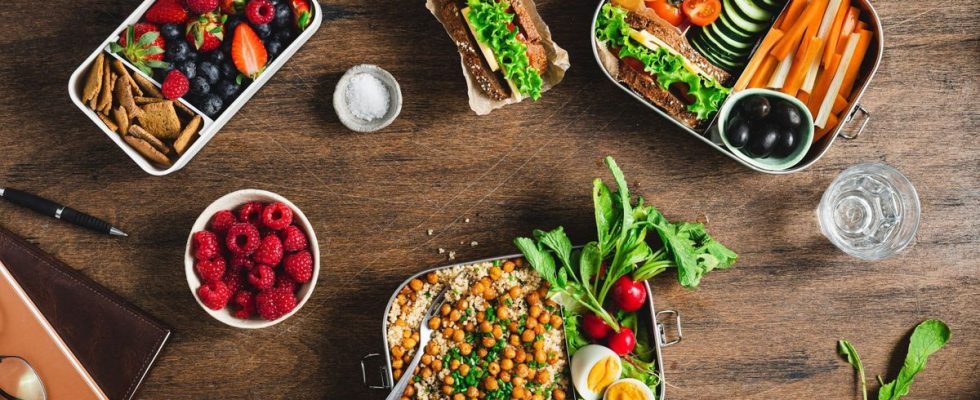Published on
Updated
Reading 2 min.
While breakfast has been stripped of its supposed status as “the most important meal of the day” for many years by various dietitians, lunch has become an important meeting for many French people. An invigorating break is also a moment we value because it invites conviviality.
“Eat your bowl of cereal and you will do well in school! “. For many decades, breakfast has been touted as the most important meal of the day. Liberation newspaper judiciously recalled in 2019 that the first appearance of this statement dates back to the beginning of the 20th century, when a dietician praised its benefits in an American health magazine. A publication whose editor-in-chief was… John Harvey Kellogg. Yes, the inventor of the famous cornflakes and director of the Kellogg Company, which over the years has become a multinational.
If the status of breakfast has been increasingly dismantled by French nutritionists in recent years – but also by intellectuals like the geographer Gilles Fumey who indicated it as a social and cultural injunction to be deconstructed in his manifesto published in 2020 published by Terre Urbaine “Fire on breakfast!” – another meal takes over, at least in the food preferences of the French: lunch. This mid-day break is considered essential by 66% of people questioned by the Cetelem Observatory, which analyzes consumption patterns throughout the year. And if we take this famous, almost idiomatic phrase “the most important meal of the day”, 41% of French people attribute it to lunch compared to 33% to breakfast, and 26% to dinner. A recognition that is even truer among seniors: 56% of those aged 65 and over consider this meal as such.
Botched during the health crisis when the French teleworked, preferring to swallow a piece without really paying attention to the contents of the plate placed in front of the computer screen, the lunch break was then undermined by inflation when employees returned to the office, to the point that the Anglo-Saxons invented a neologism: “lunchflation”, a contraction of “lunch” (lunch in English) and inflation. Understand: the famous “tupperware” that we prepare for lunch at work have become more expensive due to the rise in prices for basic foods such as pasta, rice, potatoes… In France too , we make good meals to fill us up at the office. According to the Cetelem Observatory, 45% of workers bring their meals while only 12% buy it outside, knowing that 25% of employees go to the canteen.
If lunch is considered the most copious meal by 61% of French people, but also the most qualitative (55%), its content is not only what interests its followers. It’s more than a meal. It’s a time for yourself, friendly and encourages sociability. No less than 85% of workers and students share this break with their colleagues. And it’s not just a French specificity. In the United States, a recent report from a company catering solutions provider demonstrated that respecting the lunch break made it possible to be more productive at work. In short, long live the lunch break!
This survey was carried out by Harris Interactive online from November 2 to 6, 2023. Sample of 1,165 people representative of the French population aged 18 and over.
